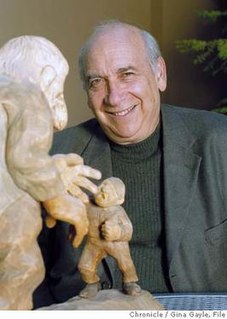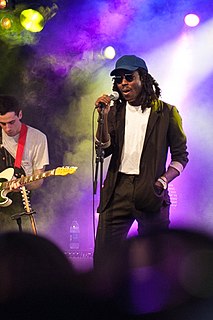A Quote by Alan Dundes
In the light of our culture, these are not unreasonable questions and tactics, but if once again, we try to see the lens through which we look, we can see that there is far too great an emphasis placed on the future.
Related Quotes
I believe this nation hungers for a spiritual revival; hungers to once again see honor placed above political expediency; to see government once again the protector of our liberties, not the distributor of gifts and privilege. Government should uphold and not undermine those institutions which are custodians of the very values upon which civilization is founded-religion, education and, above all, family. Government cannot be clergyman, teacher and patriot. It government is our servant, beholden to us.
You may be going through a trial so overwhelming that it's borderline unbearable. You want to see the end of the tunnel. Which is only natural, because once we see that little speck of light, we feel we can make it through to the finish. But God's tunnels are often twisting, too complex and dark to see the light for many days. In such settings He says, "In that dark, twisting, seemingly endless period of time, trust Me. Stop running scared! Stop fearing!"
I remember standing on a street corner with the black painter Beauford Delaney down in the Village, waiting for the light to change, and he pointed down and said, 'Look.' I looked and all I saw was water. And he said, 'Look again,' which I did, and I saw oil on the water and the city reflected in the puddle. It was a great revelation to me. I can't explain it. He taught me how to see, and how to trust what I saw. Painters have often taught writers how to see. And once you've had that experience, you see differently.
Some people say I do it too much, but I'm always asking the artist questions. Sometimes - especially with new artists - you can see they're compromising in their mind. You see that look when they're listening to a vocal take and there's hesitation. And I'll be like, 'Are you sure you don't want to do this again?'
The foreign audiences are somewhat surprised and happy to find an American film that asks questions about American culture. There's a certain kind of cultural imperialism that we practice. Our films penetrate every market in the world. I have seen and have had people reflect to me, maybe not in so many words or specifically, but I get the subtext of it - they're somewhat charmed and surprised and happy to see an American film reflect on our culture. Because they see other cultures reflect on our culture but they don't see US culture reflecting on itself in quite the same way.



































